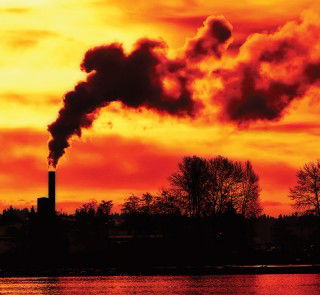At the start of April, Dr Chana Poomee, chairman of the Thai Cement Manufacturers Association, (TCMA) announced the association's vision of 'synergising actions toward Net Zero with innovation', connecting global green funds and increasing the country's industrial capacity. With support from the country's cement producers, the TCMA aims to accelerate its efforts to join forces with all sectors to achieve its key missions in four areas over the next two years.
The strategy between 2024-26 is to increase research and development of new low-carbon cements, such as calcined clays, accelerate resource-efficient mining under the Minerals Act (2017), build an integrated Bio-Circular-Green Economy and leverage innovation for the industry's transition to clean energy.
To carry out this transition, the TCMA requires government policies, appropriate technology and global green funds. It also aims to work with partner agencies, such as Thailand's Fellowship Cement Manufacturers, Federation of Thai Industries, Board of Trade in Thailand and Thai Bankers Association.
PPP-Saraburi Sandbox
Crucial to the successful outcome will be the creation of 'PPP-Saraburi Sandbox: A low-carbon city' in Saburi province. The project will include:
• energy transition, such as solar energy projects, grid modernisation, and carbon capture and storage
• industrial processes and product use (IPPU) – the production of hydraulic cement and new low-carbon cement
• waste management by turning waste into alternative and refuse-derived fuels
• agriculture to promote alternative wetting and drying in rice fields
• land use change and forestry to decarbonise.
Progress towards sustainable cement production
Siam Cement Group (SCG) has already taken the first step in lowering its carbon footprint with the development of a low-carbon cement (Gen II) that reduces CO2 emissions by 15-20 per cent, claims the company. It also has an action plan to boost alternative fuels from 40 to 50 per cent in 2024. These alternative fuels will mainly be sourced from agricultural waste such as rice husk, straw, sugarcane waste and transformed into energy pellets that reduce PM2.5 dust. SCG has also increased electricity generation with floating solar panels to 26 per cent.
Meanwhile, TPI Polene Group is aiming for carbon neutrality by 2043. It is similarly replacing coal with waste fuels (2.77Mt in 2023), using solar energy and 60t EV trucks now totalling 41 units to aid decarbonisation. It aims to introduce carbon capture and storage to its cement business in 2035. The company has also installed a CDE plant that washes and recycles soil and stone residuals from mining operations that are then usable in cement production.
Outlook
Meanwhile, Thailand's cement producers have seen the market outlook improve after domestic sales shrank 1.4 per cent YoY and cement exports dropped 14.9 per cent YoY in 2023. The economy is forecast to grow by 2.6 YoY in 2024 up from 1.9 per cent YoY in 2023, according to the Bank of Thailand (BoT), supported by improved private consumption. After rising sharply through the 2H23, interest rates are now on hold, headline inflation is low and consumer confidence is improving.
The outlook for construction is also improving with new permitted construction jumping 30.7 per cent YoY in the first two months of 2024, according to the BoT. A total of 14 major infrastructure projects, including multiple rail, highway and road schemes, are scheduled to begin this year. Large-scale infrastructure projects in key export markets, such as Vietnam, will also help to lift demand for Thai cement. Headwinds from a slowdown in China are however a key downside risk.
